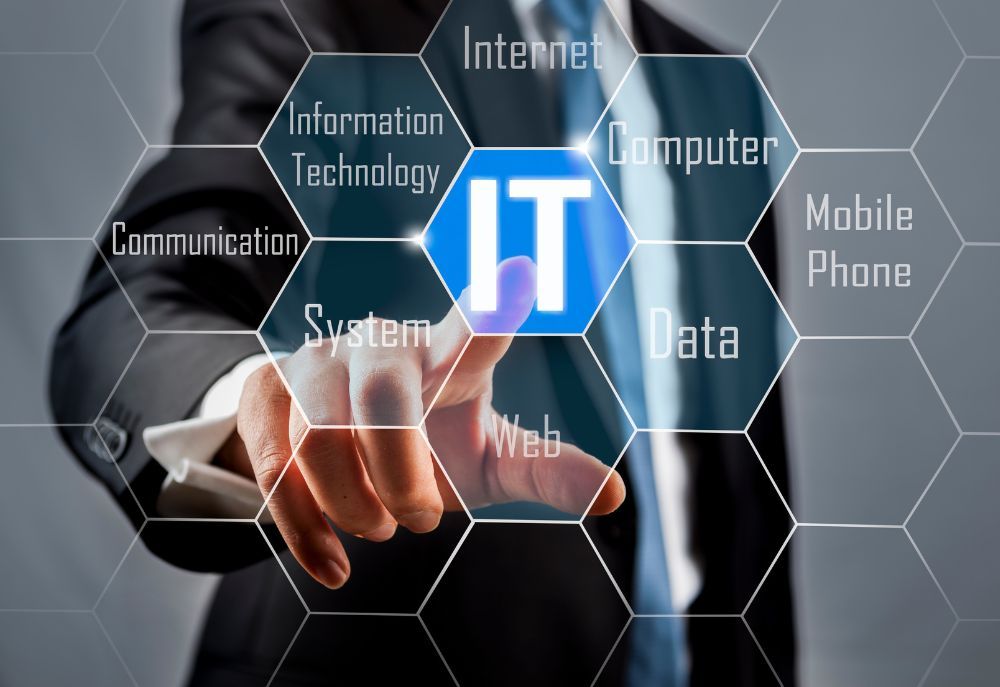How to Choose an IT Consultant for Your Business
The best way to choose an IT consultant for your business is to find someone who understands your goals, has technical expertise, and offers solutions that grow with your company.
Whether you’re a startup or an established enterprise, working with knowledgeable IT consultants like Guardian IT can give you a competitive edge in today’s technology-driven world.
Below, we break down everything you should know before hiring an IT consultant, so you can make a smart and confident decision.
Start by Understanding Your Business Needs
Before diving into consultations or comparing firms, take time to identify what your business actually needs. This step is foundational.
Here’s how to clarify your requirements:
- Define your goals: Are you aiming to improve cybersecurity, streamline operations, migrate to the cloud, or overhaul your current IT infrastructure?
- Outline challenges: Make a list of your current pain points, such as outdated software, frequent downtime, or lack of data protection.
- Consider duration: Decide whether you need short-term help or an ongoing partnership.
- Set a budget and timeline: Knowing how much you’re willing to invest and when you need the project done will guide your conversations with consultants.
- Evaluate industry-specific needs: A consultant with experience in your field will be more effective in tailoring solutions.
Once you know what you need, it becomes much easier to vet IT consultants and find one who aligns with your goals.
Evaluate Their Technical Expertise and Certifications
The right IT consultant should be more than just tech-savvy. They should bring verified knowledge to the table.
Here’s what to look for:
- Certifications: Relevant certifications like Microsoft Certified Professional, Cisco Certified Network Associate (CCNA), or AWS credentials signal credibility.
- Skills range: Check if they have experience with cybersecurity, cloud computing, system integration, and data management.
- Problem-solving mindset: They should be able to offer solutions that go beyond the surface-level fixes.
- Communication: Can they explain complex issues in simple language?
- Portfolio review: Ask about past projects that match your IT environment or business scale.
Make sure their skills match both your short-term needs and long-term technology roadmap.
Check Industry Experience and Specialization
All IT consultants specialize in specific sectors. Choosing one with experience in your industry can lead to better, faster results.
Here’s how to assess that:
- Ask for case studies: Request examples of work they’ve done in your industry.
- Look for testimonials from similar businesses: This adds confidence that they understand your unique challenges.
- Evaluate compliance knowledge: Especially important in fields like healthcare, finance, or legal, where regulatory compliance is critical.
- Discuss your workflow: See how well they understand your business operations.
- Gauge familiarity with industry tools: They should know the software and systems you use daily.
An industry-savvy consultant won’t need a learning curve; they’ll jump straight into solutions.
Review Testimonials and Real-World Case Studies
There’s no better way to predict future performance than past results.
Use these tips when reviewing a consultant’s track record:
- Look for long-term relationships: Ongoing partnerships suggest reliability and trustworthiness.
- Read testimonials carefully: Focus on client feedback regarding response times, professionalism, and problem-solving ability.
- Request detailed case studies: Understand the challenges, strategies, and measurable results.
- Verify references if possible: Reach out to past clients to get honest feedback.
- Identify repeat clients: This indicates satisfaction and effectiveness.
Real-world examples reveal how consultants handle challenges and whether they deliver on their promises.
Make Sure They Offer Ongoing Support
Hiring an IT consultant isn’t just a one-time deal. It should be a relationship that supports your business in the long term.
When evaluating support options, consider:
- Availability: Do they offer 24/7 service or business hours only?
- Emergency procedures: How quickly can they respond to outages or threats?
- Maintenance offerings: Do they conduct regular check-ins, software updates, and security patches?
- Remote support: Can they assist you without always being on-site?
- Flexibility: Are their support options scalable as your business grows?
Strong post-project support is a hallmark of IT consultants who genuinely care about your success.
Understand Their Problem-Solving Approach
IT consultants are not just system installers; they’re strategists and troubleshooters.
Here’s what to look for in their approach:
- Proactive thinking: They anticipate problems before they arise.
- Diagnostic skills: They dig deep to find the root causes, not just symptoms.
- Tailored solutions: They don’t apply one-size-fits-all fixes.
- Documentation: Their strategies are clearly recorded, so your team stays informed.
- Sustainability: They aim to create lasting improvements, not quick patches.
Ask them to walk you through a time they solved a complex issue. It’ll give you insights into how they think and work.
Discuss Budget and ROI Upfront
Cost matters, but value matters more. A well-priced IT consultant will show you how their services create a return.
Key budgeting tips:
- Understand what’s included: Are implementation, support, and training part of the fee?
- Look for transparent pricing: Avoid surprise charges later.
- Compare cost vs. outcome: Will their solution save you money, time, or both
- Ask about ROI: How do they measure results? What benefits have past clients gained?
- Avoid underpricing traps: Low prices often signal a lack of depth or support.
Frequently Asked Questions About IT Consultants
What does an IT consultant do for a business?
An IT consultant helps a business improve its technology systems, streamline operations, enhance cybersecurity, and plan for future growth. They offer expert advice and implement solutions that align with the company’s goals.
How much does it cost to hire an IT consultant?
The cost varies depending on the project scope, duration, and expertise required. Some consultants charge hourly, while others offer package pricing. Be sure to ask for a detailed breakdown and understand what’s included in the fee.
How do I know if an IT consultant is a good fit?
Look for consultants who understand your business goals, have relevant technical skills, communicate clearly, and come highly recommended through testimonials or references. A short-term trial project can also help assess the fit.
Final Words on How to Choose an IT Consultant for Your Business
Choosing the right IT consultant is more than checking boxes on a resume. It’s about finding a partner who understands your business and shares your vision for growth. From evaluating expertise and industry experience to communication style and cultural fit, every step plays a critical role in ensuring success.
If you’re looking for trusted IT consultants who prioritize long-term value and personalized service, check out Guardian IT. Their team has the experience, insight, and dedication to support your business through every tech challenge.









